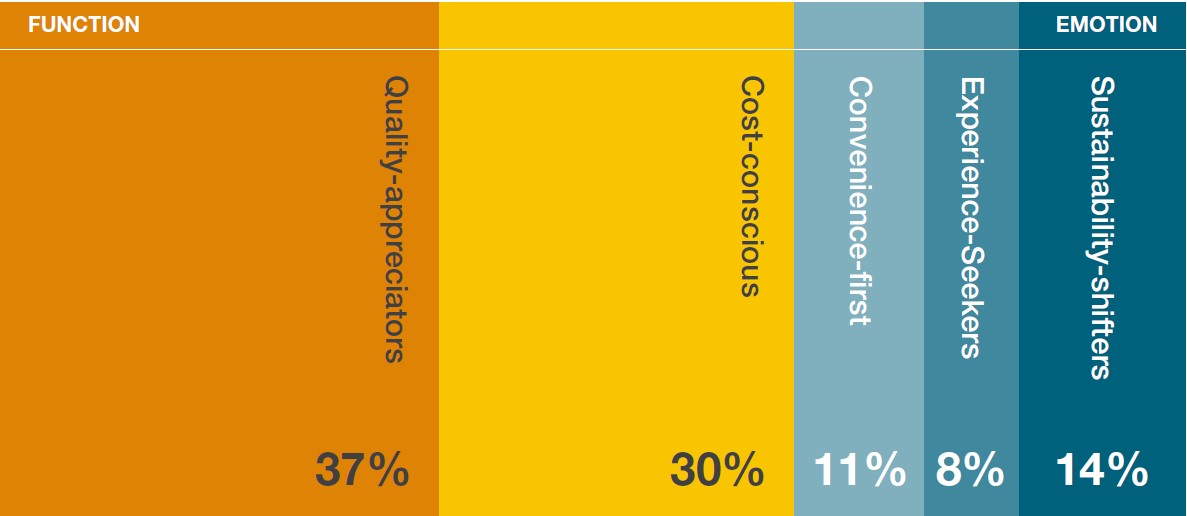What do Consumers Value most When making Purchases?
This article is part one of our three-part mini-series, derived from our report 'Changing Consumer Values' in partnership with Alvarez & Marsal, which explores how consumer values are changing, what’s shaping them and how brands should react. Check out the other two parts of the series at the bottom of this page.
2 minute read
Understanding consumer values is critical to building a strong and competitive value proposition. It forms the basis of securing customer loyalty as shoppers consider purchasing items that offer the highest perceived benefit for the lowest cost or effort.
Our research reveals five consumer value archetypes, based on how consumers across the seven countries perceive and rank the importance of the attributes when purchasing retail products and services.
Fig 1: 37% of consumers feel quality is most important when purchasing goods

Source: Retail Economics and Alvarez & Marsal
Quality-appreciators: Typically aged 55 or older, prioritise quality when buying products, with materials and brand being more important than low prices. They come mostly from the UAE and Switzerland, with higher incomes. They value easy access to product information, with 55.0% of them considering product sourcing, materials, and longevity.
Cost-conscious: Encompasses a broad age range, but generally younger consumers who seek value for money based on lower prices. They prioritise pricing transparency and access to product information, and are less likely to pay extra for sustainable products.
Convenience-first: Includes consumers of all ages who prioritise frictionless customer journeys, easy payments, and simple returns. They are willing to pay more for brands that align with their behaviour and values, and seek availability over promotions and deals.
Experience Seekers: Usually under 25 years old, value entertainment, education, environment, and escapism when shopping. They seek meaningful interactions with retail brands and value inspiring environments both in-store and online.
Sustainability Shifters: Mainly Millennials and Gen Xs who prioritise social causes and seek out sustainable products and brands. They are willing to pay more for sustainable products, with sustainable sourcing being the most critical ethical practice for over a quarter of them (26.2%).